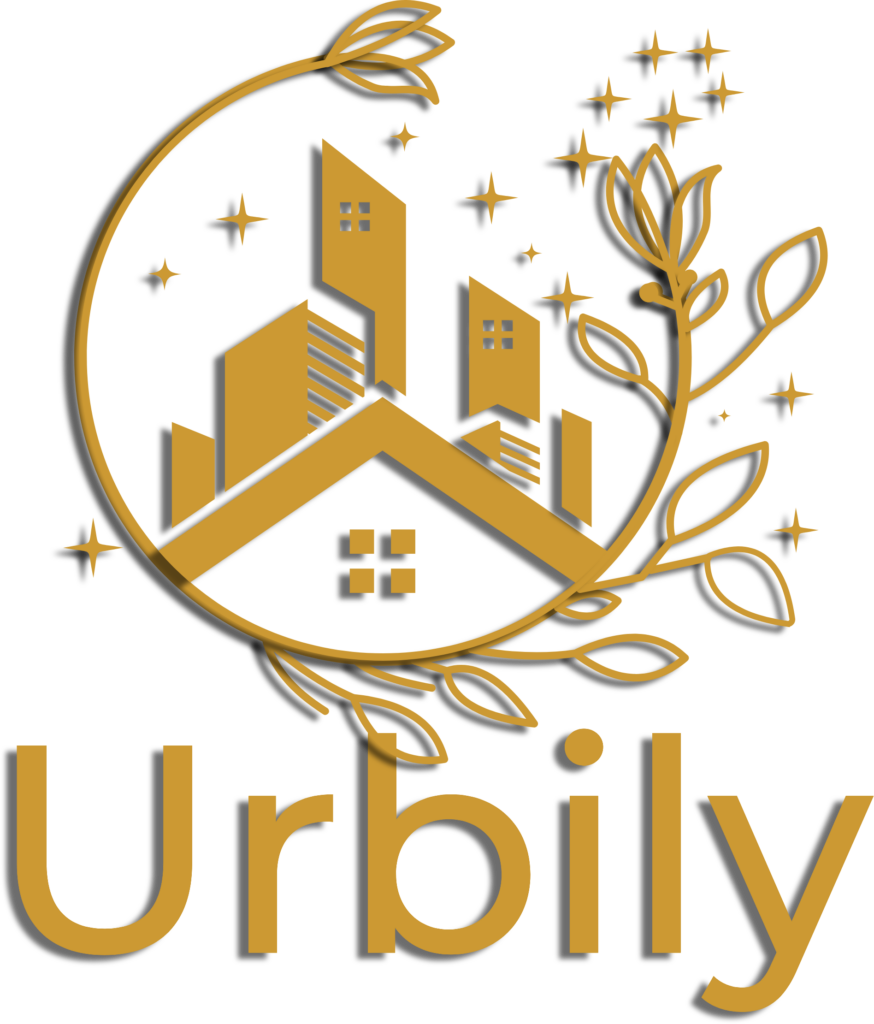When you think of Las Vegas, images of bright lights, bustling casinos, and extravagant shows often come to mind. However, the real estate market in this vibrant city is equally dynamic and offers a unique landscape for both Las Vegas house buyers and sellers. As you delve into the Las Vegas real estate market, it’s essential to recognize the factors that influence property values and trends.
The market is characterized by its seasonal fluctuations, with peak buying seasons typically occurring in the spring and summer months. During these times, you may find an influx of buyers eager to invest in the area, which can drive up prices and create a competitive atmosphere. Additionally, understanding the demographics of Las Vegas can provide valuable insights into the market.
The city attracts a diverse population, including retirees seeking a warm climate, young professionals drawn to job opportunities, and families looking for affordable housing. This diversity influences the types of properties in demand, from single-family homes to condos and luxury estates. By keeping an eye on these trends and understanding the local economy, you can make informed decisions whether you are buying or selling a home in Las Vegas.
Key Takeaways
- The Las Vegas real estate market is competitive and dynamic, with fluctuating prices and demand.
- Finding the right house buying company is crucial for a quick and hassle-free sale of your home.
- Preparing your home for a quick sale involves decluttering, staging, and making necessary repairs or upgrades.
- Understanding the selling process, including paperwork, inspections, and negotiations, is essential for a successful home sale.
- Negotiating the best price for your home requires research, patience, and the guidance of a skilled real estate agent.
Finding the Right House Buying Company
Understanding the Importance of Choosing the Right House Buying Company
When it comes to selling your home quickly and efficiently, selecting the right house buying company is a crucial step in your journey. It’s essential to partner with a company that not only has in-depth knowledge of the local market but also aligns with your specific needs and goals. A reputable house buying company will have a proven track record of facilitating quick sales while ensuring sellers receive fair offers. By collaborating with experienced professionals, you can streamline the process and maximize profits with home investors who understand the nuances of your area. This strategic partnership will not only help you achieve your desired selling timeline but also ensure that you secure the best possible return on your investment.
Researching Potential House Buying Companies
To find the ideal company, start by conducting thorough research on various house buying companies in the Las Vegas area. Look for reviews and testimonials from previous clients to gauge their reputation and reliability. A reputable house buying company will have a track record of successful transactions and satisfied customers.
Evaluating a Company’s Processes and Approach
Once you have narrowed down your options, consider reaching out to these companies for consultations. This initial interaction can provide you with valuable insights into their processes and how they operate. Ask questions about their experience in the Las Vegas market, their approach to pricing homes, and how quickly they can close a deal. A trustworthy company will be transparent about their methods and will take the time to understand your unique situation.
Ensuring a Smooth Selling Experience
By finding a company that resonates with you, you can ensure a smoother selling experience. A reputable house buying company will prioritize your needs and work to provide a seamless transaction.
Preparing Your Home for a Quick Sale

Preparing your home for a quick sale is essential if you want to attract potential buyers and secure a favorable offer. First impressions matter, so consider enhancing your home’s curb appeal. Simple tasks like mowing the lawn, trimming hedges, and adding fresh flowers can make a significant difference in how your property is perceived.
Additionally, consider giving your front door a fresh coat of paint or updating hardware to create an inviting entrance. Inside your home, decluttering is key. You want potential buyers to envision themselves living in the space, so remove personal items and excess furniture that may distract from the home’s features.
A clean, organized space allows buyers to appreciate the layout and size of each room. Furthermore, consider making minor repairs or updates that can enhance your home’s value without breaking the bank. Fresh paint, updated fixtures, or even new appliances can make your home more appealing and justify a higher asking price.
Understanding the Selling Process
| Stage | Metrics |
|---|---|
| Prospecting | Number of leads generated |
| Qualification | Percentage of qualified leads |
| Needs Analysis | Number of customer pain points identified |
| Value Proposition | Number of value propositions presented |
| Objections Handling | Number of objections raised and resolved |
| Closing | Number of successful deals closed |
Navigating the selling process can be daunting, especially if it’s your first time selling a home. Understanding each step involved can help alleviate some of that stress. The process typically begins with determining your home’s value through a comparative market analysis (CMA).
This analysis compares your property to similar homes in the area that have recently sold, giving you a realistic idea of what you can expect to receive. Once you have established a price, you’ll need to prepare your home for showings and open houses. This is where all your preparation pays off as potential buyers come to view your property.
After receiving offers, you’ll enter negotiations with interested parties. This stage requires careful consideration of each offer’s terms and conditions, as well as an understanding of what you are willing to accept. Once you’ve accepted an offer, the closing process begins, which involves inspections, appraisals, and finalizing paperwork before officially transferring ownership.
Negotiating the Best Price for Your Home
Negotiating the best price for your home is one of the most critical aspects of the selling process. It requires a combination of strategy, knowledge of the market, and effective communication skills. When you receive offers on your property, take the time to evaluate each one carefully.
Consider not only the offered price but also other factors such as contingencies, closing timelines, and buyer qualifications. A higher offer may not always be the best choice if it comes with numerous contingencies that could delay or complicate the sale. Effective negotiation also involves being prepared to counteroffer.
If an initial offer doesn’t meet your expectations, don’t hesitate to respond with a counteroffer that reflects your desired price or terms. It’s essential to remain flexible during this process while also standing firm on what you believe your home is worth. Remember that negotiation is a two-way street; understanding the buyer’s perspective can help you find common ground that leads to a successful sale.
Closing the Sale Efficiently

Preparing for Inspections and Appraisals
Inspections and appraisals are typically required by lenders before they approve financing for the buyer. Being proactive and having your home inspected before listing it can help expedite the process by addressing any potential issues upfront.
Communication is Key
Communication is essential during the closing process.
It is vital to stay in touch with your real estate agent and all other parties involved in the transaction to ensure everyone is on the same page regarding timelines and requirements.
Staying Organized and Responsive
To facilitate a quick closing that benefits both you and the buyer, it is essential to be prepared to provide necessary documentation promptly, such as title information and property disclosures. By staying organized and responsive throughout this phase, you can help ensure a smooth and efficient transaction.
Avoiding Common Pitfalls in the Selling Process
While selling your home can be an exciting venture, it’s essential to be aware of common pitfalls that could derail your efforts. One frequent mistake is overpricing your property based on emotional attachment rather than market realities. While it’s natural to have sentimental value tied to your home, setting an unrealistic price can deter potential buyers and prolong your time on the market.
Another common pitfall is neglecting necessary repairs or updates before listing your home. Buyers are often looking for move-in-ready properties; if they see significant issues during showings or inspections, they may be less inclined to make an offer or may submit lower bids to account for repair costs. By addressing these concerns ahead of time, you can present your home in its best light and avoid losing out on potential offers.
Tips for a Smooth and Successful Home Sale in Las Vegas
To ensure a smooth and successful home sale in Las Vegas, consider implementing several key strategies throughout the process. First and foremost, work with an experienced real estate agent who knows the local market inside and out. Their expertise can provide invaluable guidance on pricing strategies, marketing techniques, and negotiation tactics tailored specifically for Las Vegas.
Additionally, leverage technology to enhance your selling efforts. High-quality photos and virtual tours can significantly increase interest in your property by showcasing its best features online.
Social media platforms are also powerful tools for reaching potential buyers; consider sharing posts about your home on various channels to expand its visibility.
Finally, remain flexible throughout the selling process. The real estate market can be unpredictable; being open to feedback from potential buyers or adjusting your strategy based on market conditions can lead to better outcomes. By staying informed and adaptable, you’ll be well-equipped to navigate the complexities of selling your home in Las Vegas successfully.
If you are looking to sell your house in Las Vegas, you may want to check out Urbily’s blog for helpful tips and insights on the real estate market in the area. One article that may be of interest is “Top 5 Tips for Selling Your Home Quickly” This article offers valuable advice on how to attract potential buyers and maximize your home’s value. For more information on selling your house in Las Vegas, you can also reach out to Urbily’s team through their contact page. Visit Urbily’s blog for more information.
FAQs
What are the benefits of selling a house to a Las Vegas house buyer?
Selling a house to a Las Vegas house buyer can offer benefits such as a quick sale, no need for repairs or renovations, and the ability to avoid real estate agent fees.
How do Las Vegas house buyers differ from traditional real estate agents?
Las Vegas house buyers are typically real estate investors who buy houses directly from homeowners, often in cash and as-is, without the need for listing the property on the market.
What types of houses do Las Vegas house buyers typically purchase?
Las Vegas house buyers typically purchase all types of houses, including single-family homes, condos, townhouses, and even properties in need of major repairs.
What is the process of selling a house to a Las Vegas house buyer?
The process of selling a house to a Las Vegas house buyer typically involves contacting the buyer, receiving a cash offer, and then closing the sale quickly, often within a matter of days.
Are there any fees or commissions when selling to a Las Vegas house buyer?
Selling to a Las Vegas house buyer often involves no fees or commissions, as the buyer typically covers all closing costs and does not require the use of a real estate agent.




8 Responses